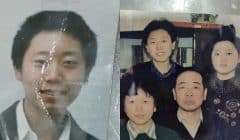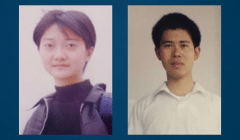National Post: Falun Gong persecution spreads to Canada
Chinese leaders gathered in early March at Beijing’s Great Hall of the People to deliver two key messages to their 1.2 billion citizens.
First, the fight against government corruption that is weakening the Communist party’s grip on the reins of power will be redoubled.
Second, Beijing’s rulers will continue rooting out Falun Gong, a spiritual movement founded in 1992 that is today to China’s masters what the Jews were to pre-war Nazi Germany: a convenient scapegoat used to explain away the failings and insecurities of the state and its leadership.
Since Falun Gong was outlawed in 1999 by Jiang Zemin, the former Chinese president, China has waged against its practitioners a determined campaign that the U.S. Congress says is “carried out by government officials and police at all levels, and has permeated every segment of [Chinese] society.” Falun Gong is targeted not only in China, it is also the subject of a propaganda campaign in Canada, one that the Canadian Security Intelligence Service warned Ottawa about years ago. It is waged by China’s diplomatic and consular officials, who rely on help from some quarters of the Canadian Chinese media, which serve roughly one million ethnically Chinese Canadians.
A week had hardly passed after Sept. 11, 2001, when Canada’s Chinese-language Sing Tao Daily, owned in part by TorStar, which publishes the Toronto Star, printed an inflammatory article entitled “Radical Religions Advocate Destroying the World,” which parroted Beijing’s equating of Falun Gong with the Branch Davidians, the American group that David Koresh indoctrinated in Waco, Tex., until his clash with police in February, 1993, led to the death of 86 people, 17 of whom were children. Les Presses Chinoises in Quebec published a series of articles between November, 2001, and February, 2002, saying Falun Gong was “an evil” cult and an “enemy to the state” and continued to print such articles after a Quebec court ordered the paper to stop.
In August, 2002, the Canadian Broadcast Standards Council found that a Vancouver-based, Chinese-language television station, Talentvision, had violated four articles of the Canadian Association of Broadcasters’ Code of Ethics as well as journalistic ethics by rebroadcasting anti-Falun Gong propaganda produced by Beijing’s state-controlled media.
In a more recent example of this campaign, Pan Xinchun, China’s consul in Toronto, was found by an Ontario court to have libelled Joel Chipkar, a Canadian Falun Gong practitioner, in a letter to the Toronto Star. Pan’s letter said Chipkar was the member of a “sinister cult” seeking to “instigate hate.”
Keith Landy, president of the Canadian Jewish Congress, believes if “Jew” were substituted for Falun Gong in the letter Pan wrote to the Star “you would have an uproar in the community.”
That the hypersensitive, politically correct to a fault Toronto Star published Pan’s letter indicates how little is understood about the Chinese government’s aggressive campaign against Canadians who practise Falun Gong and our government’s indifference to China’s hate-mongering in Canada.
– – –
In 1992, an obscure, 40-year-old former trumpet player from north-east China, Li Hongzhi, jumped on Beijing’s nationalist gravy train and founded Falun Gong. At the time, it seemed to be another in a long series of Chi Gong personal cultivation programs that China’s communist rulers began to encourage in the 1970s. The point was to promote Chinese culture and nationalism. Chi Gong teachers, or masters as they refer to themselves, developed exercise programs around the ancient Chinese belief that all forms of life in the universe are animated by an essential life-force or vital energy called “Chi.” By cultivating the body and generating positive Chi through meditation and exercise, Chi Gong is said to improve health and prevent illness.
Falun Gong emerged from the Chi Gong movement but broke new ground by stressing that spiritual and physical perfection could not be achieved only by exercise and meditation. Li argued it must be combined with a philosophy grounded in truth, benevolence and forbearance. Rather like Christian Science in the West, Li’s teaching emphasizes spiritual healing. Putting all this to paper, he deemed it essential reading for people seeking self-improvement.
Falun Gong spread across China. Millions took up the practice at a time when many despaired at the toll dishonesty and corruption was taking on the country. When criticism of Li’s teachings appeared in Chinese media, he encouraged his followers to defend Falun Gong using peaceful protests.
David Ownby, a professor of Chinese history at the University of Montreal and the author of a forthcoming book on Falun Gong, believes these protests by practitioners raised the ire of Beijing’s mandarins. Making matters worse, according to Ownby, was Li’s unwillingness to toe the Communist party line, which singled him out from other Chi Gong masters, supported by Beijing. In early 1999, rumours were spreading that Falun Gong would be banned. Li and his followers responded by organizing an April rally in Beijing, which drew thousands and struck fear in the corridors of power.
Jiang Zemin, China’s Communist boss at the time, was already facing a crisis in governing China, as it changed in the 1990s from an isolated Communist state to one focused on economic growth rates. Jiang outlawed Falun Gong and put Li on the government’s wanted list, despite protests from within the military and the Communist party, where many believed Falun Gong presented no danger to public order or the government’s hold on power.
Li fled and now lives in self-imposed exile in New York state, refusing to do interviews and communicating with what has become his worldwide following of millions who use the Internet and translations of his edicts on the path to self-improvement. Ownby (who is not a member of Falun Gong) believes that while some of their beliefs are eccentric, the group does not exhibit any of the classic tendencies of what, for a lack of a better word, are often described as “cults.” Li urges his followers to remain in the world, not to isolate themselves. He and his followers do not believe in any utopia. Adherents of Falun Gong are not asked to give money to Li, and he does not intervene in their personal lives. In fact, Ownby thinks the moral grounding of Li’s teachings is likely to make Falun Gong practitioners “more responsible citizens.”
That is not what the Chinese government wants Canadians to think about their fellow citizens who practise Falun Gong or about the thousands now in labour camps in China and others who have died in the custody of Chinese police after being arrested for practising Falun Gong.
Mei Ping, China’s ambassador to Canada, made that plain a few years ago when we met. Mei came to the National Post to extol the virtues of Communist China and the evils of Falun Gong, leaving behind a book that purported to show how Falun Gong had driven people to suicide, murder and madness, a claim without foundation and one that no other government has ever made about its own citizens who have taken up Li’s teachings.
China’s diplomats also spend much of their time trying to persuade Canadian politicians to discriminate against Falun Gong under the threat that failing to do so could jeopardize Canada-China trade relations.
Writing in March, 2003, to Jim Peterson, a Liberal MP and now a member of Paul Martin’s Cabinet, Chu Guangyou, China’s charge d’affaires in Canada, warned that China has “advised the Canadian government of the sensitivity of the issue [of Falun Gong] in the overall bilateral relations. I hope you and your government will understand our position and be vigilant against any attempt of Falun Gong to jeopardize our bilateral relations.” With the letter came the now standard package of anti-Falun Gong propaganda.
Such pressure reaches beyond federal government officials. Countless similar letters have been sent to provincial politicians as well as city councillors and mayors across Canada.
Toronto city council has experienced this first-hand. Councillor Michael Walker recently introduced a motion to have a Falun Gong day and a resolution calling on China to stop persecuting Falun Gong, but other councillors have not been so strong-willed in the face of Chinese threats that if the motion is passed it “will have a very negative effect on our future beneficial exchanges and cooperation.” Citing foreign trade, councillor Giorgio Mammoliti held up the motion and appears to want it buried in the process.
But in August, 2001, Andy Wells, Mayor of St. John’s, Nfld., responded to a letter from Ambassador Mei attacking Falun Gong saying: “Your persecution of this innocent group exemplifies your government’s moral and ethical bankruptcy.”
Within Canada’s Chinese community, the Falun Gong is often shunned and those who do business with the Chinese government are warned off employing Canadians who practise Falun Gong.
An Ontario Human Rights Commission case has arisen from this conflict. Andie Shih was a member of the board of the Chamber of Chinese Herbal Medicine of Canada, starting in 1988. According to Shih’s statements filed with the commission, a colleague on the board asked him two years ago not to attend a dinner that was welcoming a Chinese delegation because of his association with Falun Gong. When Shih refused, he was pressured to withdraw from the board. He alleges that he was eventually removed because of his Falun Gong practice.
In another complaint to the Ontario Human Rights Commission, Cathy Liu says she has suffered similarly at the hands of her former employer, Bond International College. Liu alleges that her peaceful protests in front of the Chinese Consulate in Toronto, which she did on her own time, were not acceptable to the school because the consulate was an important client. Liu’s case went to mediation; the school offered her money and an apology on the condition that it be kept confidential. She refused.
Ottawa has shown little resolve to stop the attempt by China to spread hate in Canada. Pan, who slandered a Canadian in the Toronto Star, is now pressuring the Canadian government to overturn the libel judgment. But why is Pan still in Canada, and why are China’s other diplomats and consular officials still allowed to spread propaganda against Canadians? In February, 2003, Irwin Cotler was chairman of Canada’s Human Rights Commission and described the persecution of Falun Gong in China as “the criminalization of innocence that finds expression in the intimidation, harassment, arrest, detention, coercive interrogation, torture, beatings and imprisonment for doing nothing more than espousing ancient Chinese values.”
Today, Cotler is the Minister of Justice and Falun Gong is being persecuted in his own backyard.
© National Post 2004






